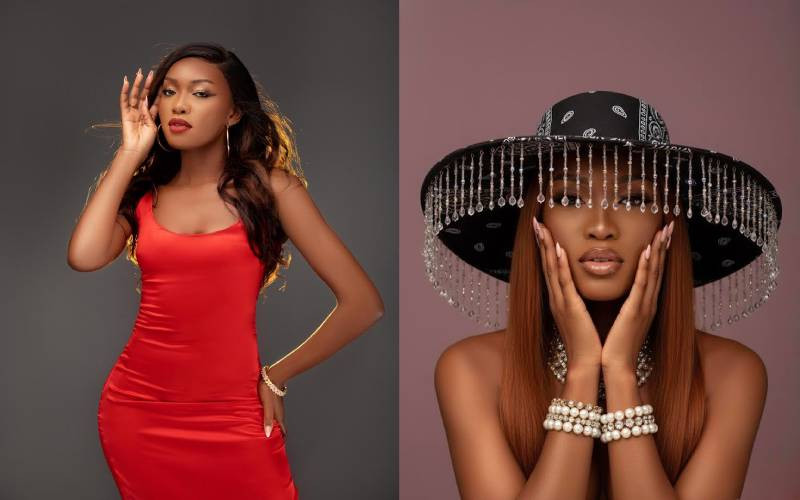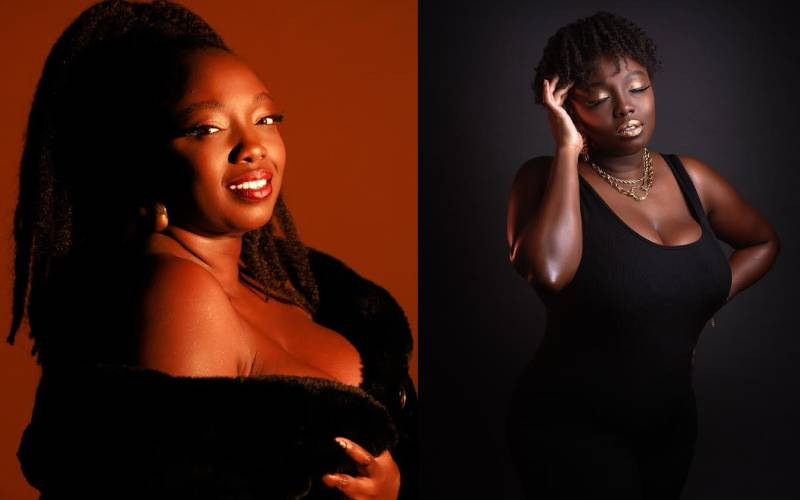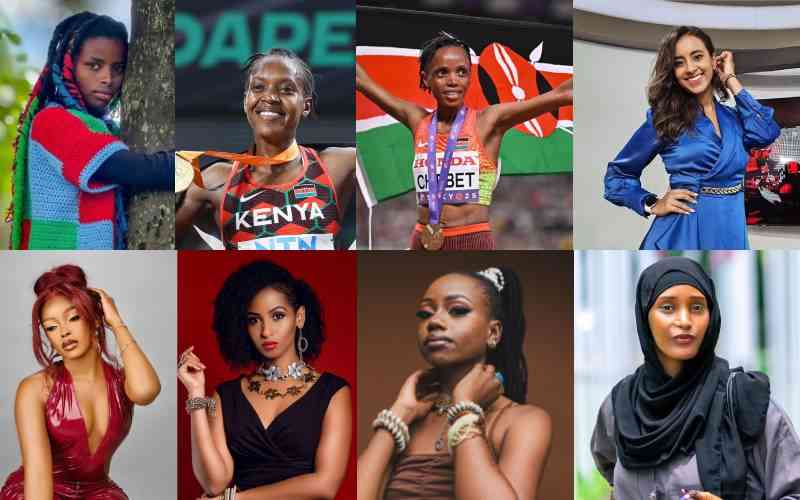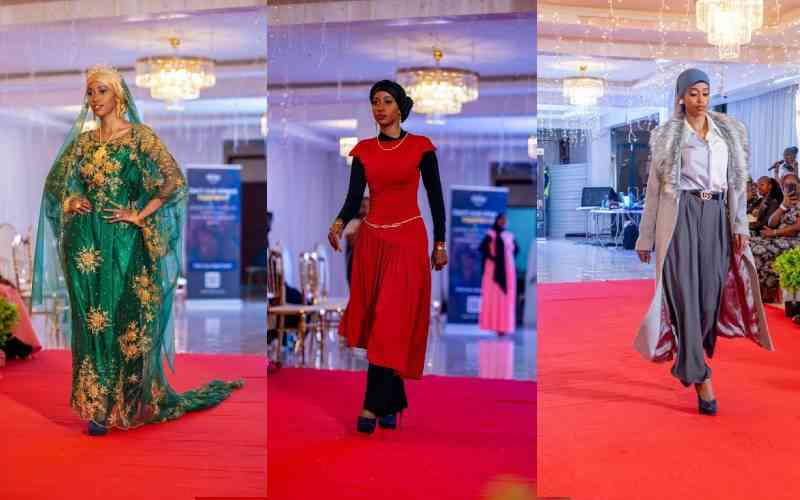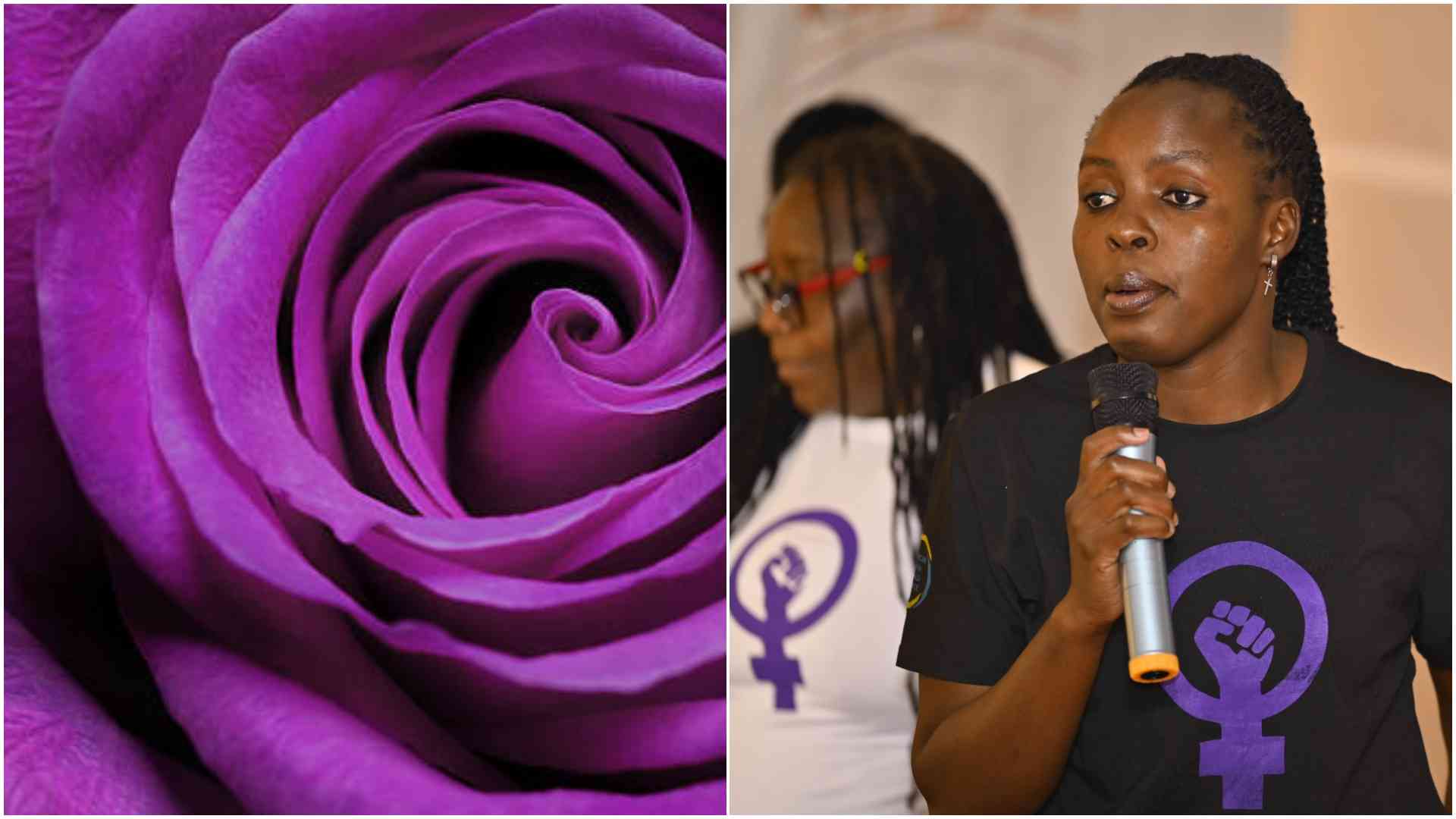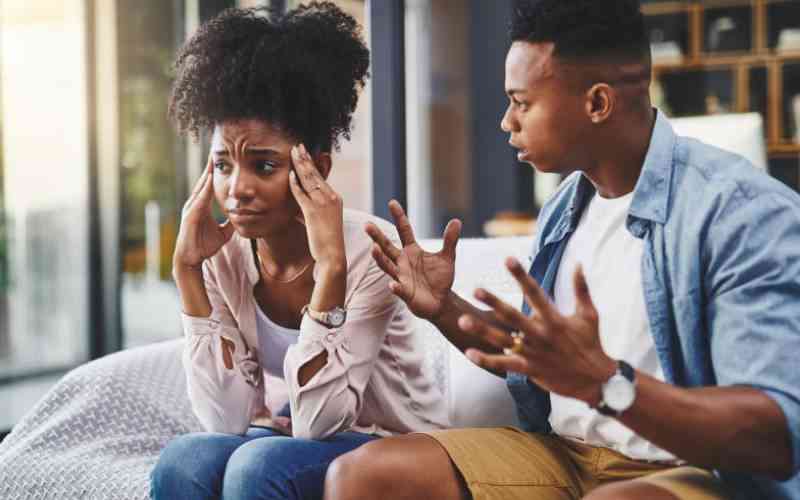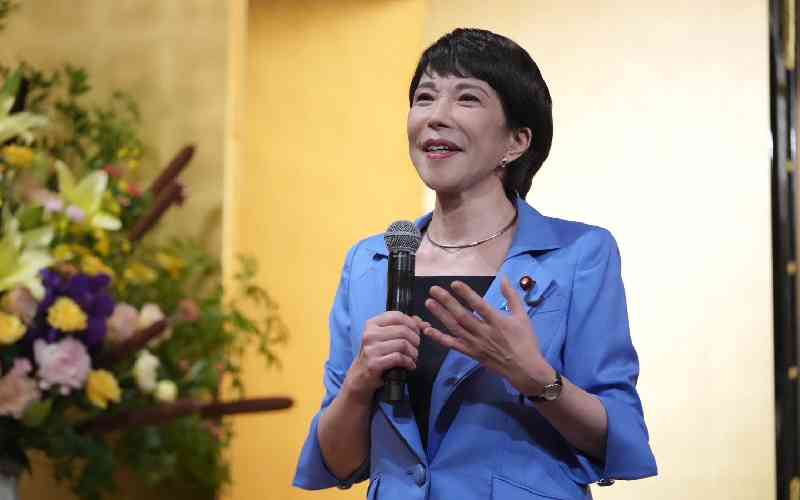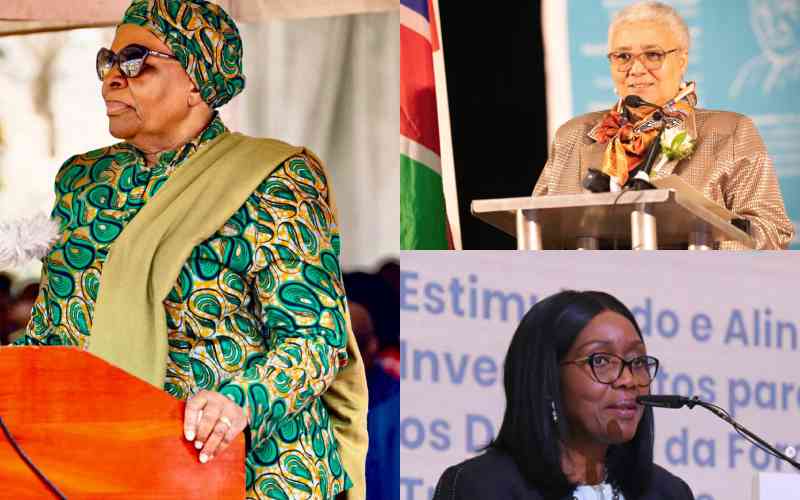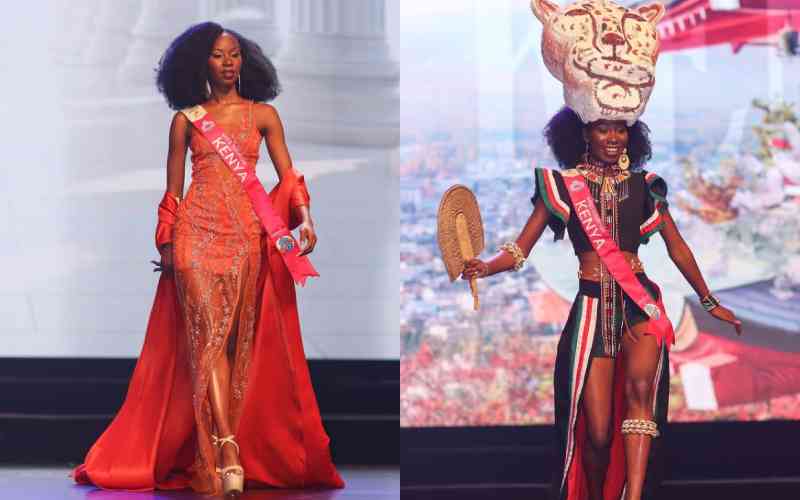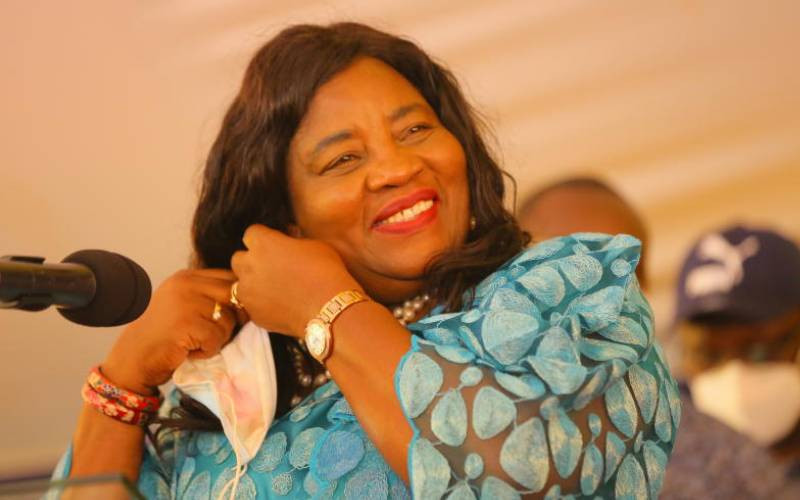
Not only is she one of the most vocal African feminists, but Scheaffer Okore is also the Vice-chairperson of Ukweli Party. She holds a Bachelor’s degree in International Relations and Diplomacy from the University of Nairobi. She talks about what feminism means to her, why she fights for women's rights, her place in the political scene and the challenges she faces.
1. What does feminism mean to you?
Feminism is the radical belief that women are people. It is the total dismantling of patriarchal power - a power that holds men and masculinity as supreme overall. This power is wielded everywhere, such as in socio-economic and political structures which actively discriminates against women while giving men unending permissions with very little accountability. Feminism is thus a must in order for women to be free.
2. What has contributed to your understanding of feminism?
Many things from my own lived experiences in a society that expects me to live an invisible silent life. Visibility is not a woman, ambition is not a woman, choices are not for women etc. Women and girls are subjected to impossible double standards in Kenyan and African political and economic, cultural and societal spaces. These are not just words, opinions and anecdotes - it is evidence, data and real life. I and many others can see clearly how the world, using its patriarchal lens, treats women with contempt. It is only by shifting this that we can change society.
3. How has your feminism shaped the work you do especially your participation in Kenyan politics as the Vice-Chairperson of Ukweli party?
Foremost, feminism has allowed me space to exist audaciously, being young and female in a political space that’s deeply patriarchal. Political power is overtly, deliberately male, so for me to be here despite all the microaggressions, transgressions and pushback is honestly because of feminist power. Because of this, my work as VC of Ukweli party has included protecting women engaged in the political process from the dehumanization within the space. Feminism is about holding space for and amplifying all those voices that have been silenced.
Feminism has made me go beyond the theory of what it means to build a community with women, into doing the actual work alongside others and remaining accountable in it. Women must be fully themselves and never negotiate their humanity in order to be seen as worthy. We are enough. As VC, my feminist lens enables a new way of speaking and enhancing people-centred power within every political structure I get into.
4. What issues do you think Kenyan feminists have successfully advocated for?
Kenyan feminists have been the defiance that is changing how women are represented, treated, included, protected and seen everywhere, especially in media, despite their slowness in catching up. For example, the conversation regarding saying no to panels - these are discussion panels featuring exclusively male guests - was started by feminists who got tired of watching as men, and men alone were continually invited to speak about everything under the sun as Kenya's sole public representatives. #MyDressMyChoice, a campaign that addressed women’s body autonomy and the fact that it was/still is a criminal act to publicly undress a woman, was feminist work which was mostly organised and catalysed on social media. #WeAre52pc continues as a rallying call where feminists remind us that we are yet to enact the ? gender rule, to our own detriment as a nation. Young feminists stood up against femicide and organized #TotalShutDownKE, which featured demonstrations that run in 3 counties concurrently. The #MyAlwaysExperience campaign questioned the deplorable quality of sanitary pads available in Kenya, unearthed the stigma of menstruation and unmasked the lived reality of absolute period poverty; it was started, run and pushed by Kenyan feminists. Anyone saying "that feminism stuff is just on twitter" is a liar who is running scared, because they know the truth. Kenyan feminists organise both online and offline, on the front lines and behind the scenes, in homes, in the grassroots, in communities, in NGOs. Kenyan feminists are constantly pushing back, and never give up, despite the abuse, harassment and mockery. Many things have shifted and continue to shift because of them.
5. What is current and critical? What is required in advocating for said issues?
What’s critical and required is the honest support and progressive action of male allies who have the power to change behaviour and structures to start seeing the violence of patriarchy. It has to move beyond sympathy during a crisis, and beyond helplessness, beyond excusing themselves as individuals despite benefiting from the violence and toxicity of systemic male supremacy, beyond thinking that being kind to the women in one's small ecosystem is enough. Power must move, and men must be the ones to move it. Women are unjustly subjected to lifelong oppression because of systems and structures that positions one gender above the other. We, therefore, need the accountability, commitment and action of men - because patriarchy works in their favour - to step up and do their part.
6. What type of backlash have you faced for your feminist activism and how do you handle it?
I live through constant rejection, have received death threats, been violently trolled online, lost job opportunities and people I believed were close friends because of my feminist activism. I believe like everything else worth fighting for there is a price to pay, and this has been the price. I learnt to handle it by recognizing the importance of healing in my line of work and hence building a legion of feminist women as my support system.
7. When did you start your journey in the space of politics? What have been triumphs and what have been challenges?
My journey in politics formally stated in 2017, but informally I’ve been engaged in the various democratic and political process for the past 10 years. Everything I had been doing was around political consciousness, active citizen participation, human rights, women's rights/empowerment with a shift into feminism (they're not the same thing), and social justice that broadly involved politics. My greatest achievement has been setting a new standard of leadership and demonstrating the possibilities we have as women and youth. One huge challenge is remaining committed to doing right as a leader when the cost of doing right is so high. It’s terrible that there’s punishment for demanding better leadership.
8. Majority of women give up when they are attacked and decide to hide in safe spaces but you keep taking risk after risk. What drives you?
It's interesting that you imagine there is an abundance of safe spaces for women - where are they? Even in their own homes and among loved ones, women face several risks which we read about every day. Anything from cooking the wrong meal to speaking too loudly, to entering through the door a minute too late, can result in disaster. Additionally, different people can do different things: political life is not for everyone. Men also back away from this space when attacked - is anyone accusing them of "hiding"?
For myself, I am more afraid of failing my mother and her mother (my late grandmother) than I’m afraid of the attacks being thrown at me. What people don’t know is that for one woman like me to make it, an entire generation of women have to shift to ensure this happens. Many women before me made sacrifices so I can get ahead without being afraid. If I fail to change the here and now for the women who are coming, what was the point of it all? The only wealth I want to pass on in my lifetime is the wealth of generational liberation and freedom. I cannot hide even if I wanted to because I need to shift as much as I can so many women can make it. That is my motivation.
9. Who has been your biggest support system through it all?
I have a great relationship with my oracle of a mother. My mother is a healer of souls who speaks life into things and has helped me shape my voice. My mother doesn’t understand impossibilities and sees everything life throws at me like a dare. She is the true heroine of my life story. A true daughter of defiance.
10. What has been the most important lesson you’ve learned that young aspiring female politicians should know?
Walk into it as yourself: no masks or performances. Everything you will go through (which is a lot) will definitely change you - let it make you more humble, more hearing, more open to the many you will meet who all come from different places and spaces. The greatest source of power for any politician is authenticity. Be who you are, find people who understand you and aren’t afraid to tell you the truth because leadership is easier when it’s done in truth.
11. Why is there a need for more women in politics?
Because there are not nearly enough, proportional to the number of women in the population. Who can pretend we are representing women the best way we can, with things as they are now?
12. Is there a distinction in the type of women in politics you may be advocating for?
I am advocating for more feminist-oriented women to be in political spaces. Feminist women understand the importance of doing actual work to build women up in spaces in which they will thrive, and won’t engage in tokenistic work. These are women who won’t only break the glass ceiling but will clear the shattered glass so those women coming after aren’t cut from the debris. They find peace in seeing more women try, they don’t judge failure, they don’t use patriarchal lenses or their internalized misogyny to bring other women down, they don't glory in being "the only/exceptional woman" or one among a few,, they push back on toxicity and expand the space to include others. We need more of these women in such a space to be able to shift conversations and participation, as well as redefine what true female leadership can be.
13. What do you consider are key feminist issues that existing and aspiring female politicians should be addressing currently?
There are infinite issues affecting women, and any of them can be a rallying call to a successful campaign. The main issue remains that women need to be authors of their own destinies, and stop having decisions made on their behalf, governments and counties ran on their behalfs, by men who would boo them out - even of parliament - if they happened to come to work with a baby, as we saw with Kwale Women Rep Hon. Zuleika Hassan. Women can and should be central in every conversation about the present and future of this country, even when they have tried to write us out of its history. We don't want women to be put in a corner labelled "gender", or to be lumped with "youth, children and social issues" and given negligible budget allocations. Women are key to security, finance, health, education, foreign relations, development strategy and everything that affects every Kenyan. So even as we discuss access to reproductive health options; the gendered nature of poverty; the status of vulnerable women workers especially domestic workers; the crises of domestic violence, femicide, period poverty; access by women to public financing and welfare; the vulnerability of widows, elders and children etc, women are not a problem to solve. We are the fulcrum this country is able to balance on, and it is about time that we got the respect, honour, recognition and radical inclusion that we deserve.
 The Standard Group Plc is a multi-media organization with investments in media
platforms spanning newspaper print
operations, television, radio broadcasting, digital and online services. The
Standard Group is recognized as a
leading multi-media house in Kenya with a key influence in matters of national
and international interest.
The Standard Group Plc is a multi-media organization with investments in media
platforms spanning newspaper print
operations, television, radio broadcasting, digital and online services. The
Standard Group is recognized as a
leading multi-media house in Kenya with a key influence in matters of national
and international interest.

